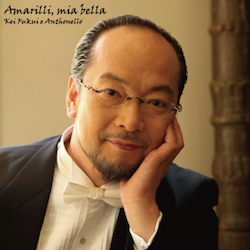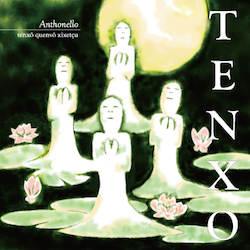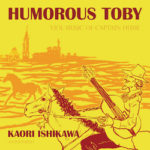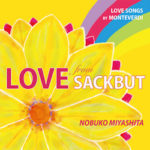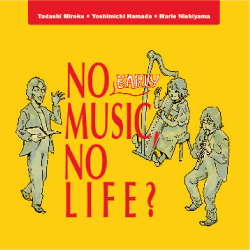濱田 芳通|リコーダー|コルネット|指揮
濱田 芳通|リコーダー|コルネット|指揮
我が国初の私立音楽大学、東洋音楽大学(現東京音楽大学)の創立者を曾祖父に持ち、音楽一家の四代目として東京に生まれる。桐朋学園大学古楽器科卒業後、スイス政府給費留学生としてバーゼル・スコラ・カントールムに留学。リコーダーを花岡和生、コルネットをB.ディッキー、中世理論及びアンサンプルをC.ヤング、D.ヴェラールの各氏に師事。コンチェルト・パラティーノ、アンサンブル≪PAN≫、アンサンブル≪ラ・フェニーチェ≫のコンサート及び録音に参加するなど、ヨーロッパ各地で活躍する。また、映画「利休」及びアニメ「耳をすませば」「テガミバチ」の音楽、大河ドラマ「信長」「秀吉」に出演するなど、知られざるバロック以前の音楽や楽器を広めるべく、幅広い活動を行っている。東京「目白バ・ロック音楽祭」レジデント・アーティスト、大分「豊後ルネサンス音楽祭」音楽監督を歴任。2008年1月、神奈川県立音楽堂主催のC.モンテヴェルディ作曲 歌劇『オルフェオ』では、音楽監督及び指揮者をつとめた。2010年12月には東京室内歌劇場公演にて、F.カヴァッリ作曲のバロック・オペラ『ラ・カリスト』を指揮、好評を博した。2013年よりバロック・オペラ上演プロジェクト<オペラ・フレスカ>を立ち上げ、C.モンテヴェルディの3大オペラの上演、G.カッチーニのオペラを本邦初演するなどその活躍は目覚ましい。
Yoshimichi Hamada | Recorder | Cornett
Yoshimichi Hamada was born into a family of musicians in Tokyo as a great-grandson of the founder of Japanese first private music college, the Toyo Music Academy (the forerunner of the Tokyo College of Music). He studied recorder with Kazuo Hanaoka and graduated from the Period-instrument course of the Toho Gakuen College Music Department; and then he won a scholarship from the Swiss government and entered the Schola Cantorum Basiliensis to study cornett with Bruce Dickey, as well as medieval music theory with Crowford Young and Dominique Verart. He joined many CD recordings which are much appraised. While in Europe, he collaborated with such leading early music groups as Concerto Palatino, Ensemble PAN, and Ensemble La Fenice in concerts and recordings. In Japan, he works extensively to propagate pre-baroque music and instruments, which are still not famous, through various activities – for instance joining into the soundtracks of the film “Rikyu”, the animations “Mimi wo sumaseba (Whisper of the Heart)” and “Tegamibachi”; he also appeared in the NHK-TV sagas “Nobunaga” and “Hideyoshi”.
In recent years, Yoshimichi Hamada devotes himself to the productions of early opera works; in 2008, he conducted “L’Orfeo” of Claudio Monteverdi. In 2010, he appeared as conductor of “La Calisto”, an opera of Francesco Cavalli. In 2013, he started the project “Opera Fresca” to perform baroque operas such as three great works of C. Monteverdi, as well as the Japan premier of Giulio Caccini’s “L’Euridice” (the oldest “opera” music in the world still extant). Besides striking activities in the world of early music, he frequently works together with musicians of other genres, such as jazz. His vivid and free improvisation reminds us of the charms and thrills which early music must have had. He trains the next generation in wide areas, not limited to the instruction of recorder and cornett, but also of vocal music, chorus, and interpretation of medieval, Renaissance, and early baroque music.
To date, he taught at the Tokyo University of Fine Arts (Faculty of Music – recorder course of the Early Music Department) and gave masterclasses for the Tokyo Nikikai Opera Foundation. He is the permanent conductor of vocal ensemble La Voce Orfica.
In recent years, Yoshimichi Hamada devotes himself to the productions of early opera works; in 2008, he conducted “L’Orfeo” of Claudio Monteverdi. In 2010, he appeared as conductor of “La Calisto”, an opera of Francesco Cavalli. In 2013, he started the project “Opera Fresca” to perform baroque operas such as three great works of C. Monteverdi, as well as the Japan premier of Giulio Caccini’s “L’Euridice” (the oldest “opera” music in the world still extant). Besides striking activities in the world of early music, he frequently works together with musicians of other genres, such as jazz. His vivid and free improvisation reminds us of the charms and thrills which early music must have had. He trains the next generation in wide areas, not limited to the instruction of recorder and cornett, but also of vocal music, chorus, and interpretation of medieval, Renaissance, and early baroque music.
To date, he taught at the Tokyo University of Fine Arts (Faculty of Music – recorder course of the Early Music Department) and gave masterclasses for the Tokyo Nikikai Opera Foundation. He is the permanent conductor of vocal ensemble La Voce Orfica.
